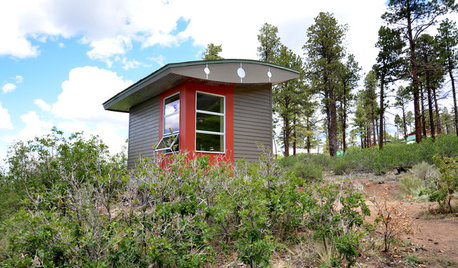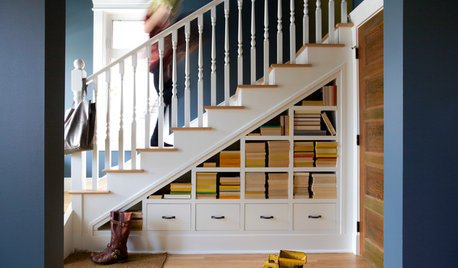Do you consider yourself middle class?
golddust
11 years ago
Related Stories

REMODELING GUIDES5 Ways to Protect Yourself When Buying a Fixer-Upper
Hidden hazards can derail your dream of scoring a great deal. Before you plunk down any cash, sit down with this
Full Story
SMALL SPACESCalm Yourself in a Former Hippie Commune’s Tiny Hut
Need to relax? Check into this simple, secluded lodging at a New Mexico retreat and say, “Om”
Full Story
REMODELING GUIDESConsidering a Fixer-Upper? 15 Questions to Ask First
Learn about the hidden costs and treasures of older homes to avoid budget surprises and accidentally tossing valuable features
Full Story
HOLIDAYSHave Yourself a Rustic Christmas
Conjure a Yuletide on the prairie with plentiful greenery and other country-style holiday decorations
Full Story
MOST POPULAR8 Questions to Ask Yourself Before Meeting With Your Designer
Thinking in advance about how you use your space will get your first design consultation off to its best start
Full Story
DECORATING GUIDESDecorating 101: Do It Yourself or Hire a Pro?
Learn the advantages and disadvantages of decorating alone and bringing in skilled help
Full Story
ORGANIZINGPre-Storage Checklist: 10 Questions to Ask Yourself Before You Store
Wait, stop. Do you really need to keep that item you’re about to put into storage?
Full Story
DECORATING GUIDESYou Said It: 'Make It Easy on Yourself' and More Houzz Quotables
Design advice and observations that struck a chord this week
Full Story
HOME INNOVATIONSConsidering Renting to Vacationers? Read This First
More people are redesigning their homes for the short-term-rental boom. Here are 3 examples — and what to consider before joining in
Full Story
MOVINGHome-Buying Checklist: 20 Things to Consider Beyond the Inspection
Quality of life is just as important as construction quality. Learn what to look for at open houses to ensure comfort in your new home
Full Story






judithn
judithn
Related Discussions
Do you consider yourself a 'hoarder'?
Q
How do you protect yourself when you plan to build?
Q
Class 2, don't look if you have not finished the first class :)
Q
Middle Class Chateau
Q
kkay_md
golddustOriginal Author
terezosa / terriks
stinky-gardener
roarah
judithn
roarah
stinky-gardener
roarah
judithn
roarah
blfenton
judithn
terezosa / terriks
roarah
chispa
kkay_md
runninginplace
gsciencechick
User
gsciencechick
User
mtnrdredux_gw
stinky-gardener
User
cyn427 (z. 7, N. VA)
golddustOriginal Author
mtnrdredux_gw
jmc01
palimpsest
User
judithn
kitchenwitch
roarah
Bumblebeez SC Zone 7
roarah
hilltop_gw
palimpsest
hilltop_gw
stinky-gardener
palimpsest
stinky-gardener
cyn427 (z. 7, N. VA)
golddustOriginal Author
patty_cakes
patty_cakes
SunnyCottage
patty_cakes